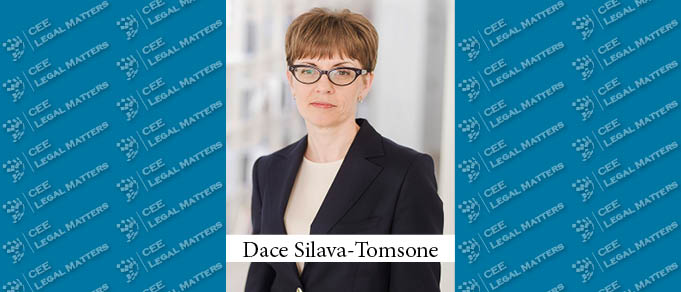After a bit of a slowdown following the start of the war in Ukraine, the Latvian markets bounced back, with the financial and energy sector being particularly active, according to Cobalt Partner Dace Silava-Tomsone.
“The onset of the war in Ukraine has introduced a brief hiccup in the transactional markets, with some deals being suspended or canceled altogether,” Silava-Tomsone begins. “Currently, however, the markets have bounced back, and there is quite a lot of investments taking place in various industries – finance and energy in particular.”
When it comes to finance, Silava-Tomsone reports that transactional efforts are “dominated by fintech company acquisitions and various startups changing hands.” Additionally, there is a surge in AML work, she reports, mostly when it comes to “companies checking their counterparties for compliance with respect to the sanctions regime” and “work on more comprehensive compliance programs for larger companies.” The former also supplies work to commercial and dispute resolution lawyers when the agreements have to be terminated. She indicates that the markets have reached a point where “AML is an integral part of all work, especially in light of the sanctions.”
Moreover, Silava-Tomsone reports that the real estate market in Latvia has “been performing a bit slower when compared to last year. However, there is still strong interest from a number of funds – mainly Baltic based – in completed commercial property projects. Likewise, developers are actively looking for opportunities, notably in the residential sector,” she says.
“Understandably, with markets being busy battling the unprecedented hike of prices and supply chain disruptions – delays and limited supplies – commercial work has grown.” Silava-Tomsone points out that she has been pleasantly surprised that “most of the market players are quite ready to renegotiate their contracts, taking into account new realities and finding a new commercial balance.” As a consequence, she reports that there have not been a lot of disputes, nor restructuring or insolvency proceedings. “I do believe that this might change, however, in the autumn, when growing energy prices start to coincide with energy deficits,” she stresses.
Finally, Silava-Tomsone shares that, with the parliament in summer recess, there has not been a lot of legislative activity in Latvia. Moreover, “with the parliamentary elections coming up this autumn, I believe that politicians are careful about making any moves that might reverberate poorly among their voters.” She concludes by adding that “a number of institutions are preoccupied with unearthing alternative energy sources, in terms of supply, and with devising social programs to be deployed to ease the pressure on households.”
















